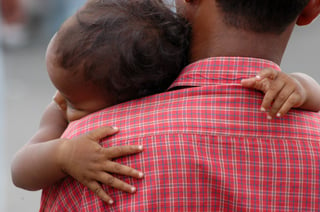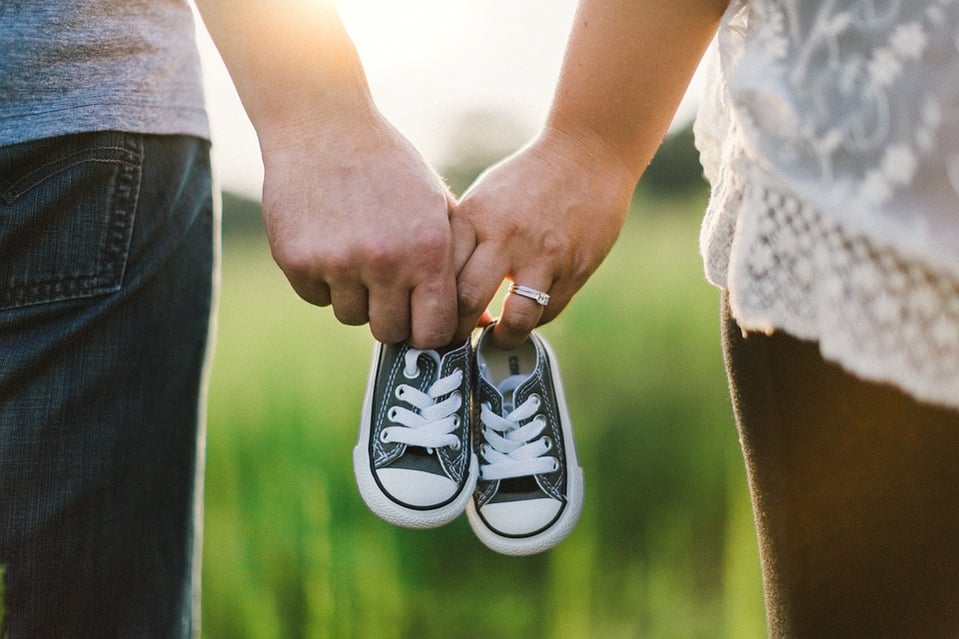 If you are looking to adopt a child either domestically or internationally you will need to start by securing an adoption agency and the beginning the home study process. Family Connections, Inc. is an authorized New York State adoption agency that is Hague Accredited by the Council on Accreditation. The Agency provides home study services for families adopting domestically and internationally.
If you are looking to adopt a child either domestically or internationally you will need to start by securing an adoption agency and the beginning the home study process. Family Connections, Inc. is an authorized New York State adoption agency that is Hague Accredited by the Council on Accreditation. The Agency provides home study services for families adopting domestically and internationally.
Some people feel overwhelmed at the thought of having a social worker come to their home and all of the paperwork that has to be completed for a home study. Even though it may seem monumental, breaking it down and taking one task at a time will help to make the process less stressful. Remember, the social worker is coming to your home not to judge you or find fault with you but to help you bring a child home. So relax and try to enjoy the process of preparing for your adoption. Below is an outline of what is needed for an adoption home study in New York State:
Face-to-Face Interviews of the prospective adoptive parent(s), children in the home, and adult household members (persons living in the home age 18 years and older) by an adoption Social Worker. The number of interviews is determined by the specific requirements of the family’s planned adoption. The social worker will ask the prospective adoptive family questions regarding:
-
Reasons for making an adoption plan
-
Adoption plan specifics - number of children, age of child(ren), gender, ethnicity, special needs of child (if applicable), country from which adopting
-
Plans for family leave, child care and/or schooling after the child(ren) arrives home
-
Previous adoptions and/or home study investigations
-
Parenting history and/or experience with children
-
Parenting beliefs and discipline techniques
-
Each prospective adoptive parent’s childhood and extended family relationships
-
Each prospective adoptive parent’s education and work history
-
Each prospective adoptive parent’s hobbies and interests
-
History of child abuse or maltreatment (victim or offender)
-
History of crime (victim or offender)
-
History of drug or alcohol use
-
History of mental health challenges
-
History of physical health issues
-
The family’s religious beliefs
-
Marriage(s), partners, or other adult relationships; if married or have a partner - the status of the relationship and how the couple makes decisions and resolves conflicts
-
Each adult household member’s social history and feelings about the adoption
-
Each child’s understanding and feelings about their parents’ adoption plan
-
Family, friend and community support for adoption
-
Prospective adoptive family’s community (e.g. schools, parks, medical services, etc)
Home Visit(s) / Home Safety Assessment will be conducted by an adoption Social Worker to ensure the prospective adoptive family’s home is suitable and safe for a child(ren). The number of home visits is determined by the specific requirements of the adoption.
Child Abuse and Maltreatment History Reports (aka child abuse clearances) must be acquired from each state and country from which the prospective adoptive parent(s) and adult household members have lived for the past five years for domestic adoption or since their 18th birthday for international adoption.
Vulnerable Persons Abuse and Maltreatment History Reports must be obtained from the Vulnerable Persons’ Central Register administered by the New York State Justice Center for the Protection of People with Special Needs for the prospective adoptive parent(s) and all adult household members.
Criminal History Reports (aka criminal clearances) must be obtained from the New York State Department of Justice, the Federal Bureau of Investigation (FBI), and any country from which the prospective adoptive parent(s) and adult household members have lived for the past five years for domestic adoption or since their 18th birthday for international adoption. In addition, each prospective adoptive parent and adult household member must sign and have notarized a Sworn Statement of Criminal History that denies a criminal history or discloses a history of arrest(s) or conviction(s).
Medical Reports for the prospective adoptive parent(s), adult household members, and children in the home must be provided to the home study provider. For each individual living in the home, the medical provider must report on:
-
the general health of the individual
-
expected life expectancy of the individual (normal or shortened)
-
the absence of communicable disease(s)
-
chronic medical conditions and their potential impact on the individual’s capacity to parent a child (if any)
-
physical health concern(s) that may affect the proper care of a child
-
mental health condition(s) and their relation to parenting ability
-
status of immunizations for each child living in the home
An Analysis of the Financial Resources of the prospective adoptive family will be conducted. The prospective adoptive parent(s)’ must provide proof of income, assets and liabilities. They must also indicate their monthly net income and monthly liabilities. In addition, proof of health insurance and life insurance is required.
The Adoptive Parent(s)’ Birth, Marriage, and Divorce (if any) must be verified. The prospective adoptive parents must provide their birth certificates, their marriage certificate and divorce decrees (if any) to the home study provider.
Adoption Questionnaires will be completed by the prospective adoptive parents. The questionnaires explore the family’s understanding and preparedness for the adoption process and for parenting an adopted child.
The Adoptive Parent(s)’ Family, Education, Employment, Marital, and Parenting History will be explored by the adoption Social Worker. The prospective adoptive parents will:
-
provide information regarding their immediate and extended families including relationships with parents, sisters, brothers, nieces, and nephews.
-
indicate their educational history (degrees and honors)
-
confirm their current employment and discuss their work history
-
discuss their relationship (martial or life partnership) and any past marriages (if any). If a single individual, the social worker will explore current and past adult relationships and the individual’s plan for parenting support and gender modeling.
-
if currently parenting - discuss and demonstrate their parenting skills with their current children; and their plans for parenting and disciplining an adopted child(ren)
-
if not currently parenting - discuss their experience with children and their parenting beliefs and intended techniques; discuss their plans for parenting and disciplining an adopted child(ren)
Personal References from individuals (not family members) who have known the prospective adoptive family for a long period of time are required. A minimum of three positive references must be provided. The references should comment on the prospective adoptive parents’ personal values, status of their marriage or life partnership, parenting history or experience with children, and suitability for adoptive parenting.
Adoption Training will be completed by the prospective adoptive parents. The adoption Social Worker will assess each family’s specific training needs. The Social Worker may provide one-on-one personal training for the prospective adoptive family and/or refer the family to group classroom training and/or require them to complete on-line coursework. In addition, the Social Worker will provide the family with a suggested reading list of relevant adoption literature and refer the family to local adoption support networks.
Families adopting a child(ren) from a foreign country will be required to complete a minimum of ten hours of training as required by the Hague Convention on the Protection of Children and Cooperation in Respect of Intercountry Adoption. The training must include but is not limited to, the following topics: the process of international adoption including risks, delays, and challenges, effects of malnourishment, impact on child of leaving native country, effects of institutionalization, issues of attachment and other emotional problems, separation and loss, cultural diversity and sensitivity, adoption throughout the lifespan; medical, development and behavioral issues as it pertains to international adoption.
Family Connections, Inc. is an authorized New York State child placing agency who has achieved Hague Accredidation through the Council on Accredidation. Family Connections provides adoption home study and post placement supervision services to New York families in Syracuse, Binghamton, New York City, Albany, Cortland, Ithaca and all over the state. If you would like more information about adoption or home study services please contact Anita or Renee at 607-756-6574 or info@adoptfamilyconnections.org to set up a time for a free, no obligation consultation with our adoption social workers.




Let Us Know What You Thought about this Post.
Put your Comment Below.